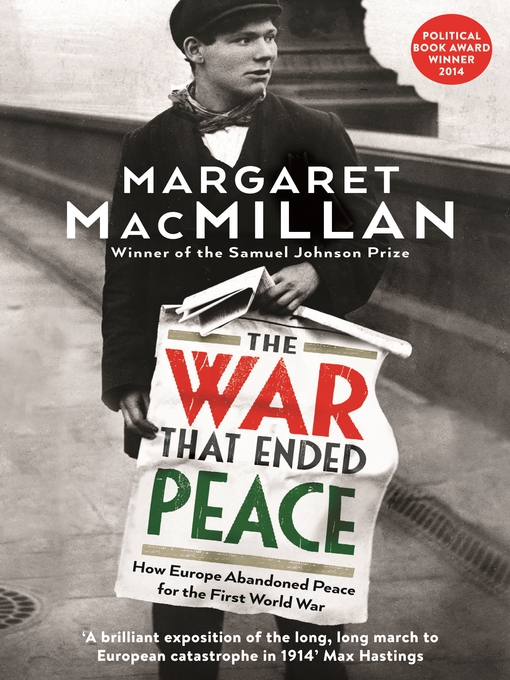
The international landscape is changing. The emergence of new and powerful global players such as China, India and Brazil lessens Europe’s traditionally strong position on the international stage. One of the questions facing European policy-makers today is thus how Europe can exert influence in an increasingly globalised world despite its comparative decline in military strength and economic capacity vis-a-vis the new emerging powers.
In the mid 2000s at the University of Oxford, a group of researchers, led by Kalypso Nicolaidis, founded the research project RENEW – Rethinking Europe in a Non-European world – in order to address precisely this question as well as to reflect more widely on Europe’s role in a changing world order.
One of the main tenets of RENEW is that strengthening European influence on a global level has to involve challenging the centrality of Europe in our understanding of international affairs. Kalypso Nicolaidis and her colleagues argue that the EU’s outlook on the wider world and its international partners is often deeply Eurocentric, i.e. that the EU perceives and judges events from an exclusively European standpoint and assumes its own development as the standard to which others ought to aspire.
They maintain that the presumption that others ought to aspire to European standards reproduces an essentially colonial mindset in which Europe figures as the pinnacle of civilisation; a mindset that classifies others according to how far they approximate European values and conditions and that grants them certain privileges on this basis. By tacitly assuming the superiority of the West, the EU projects the impression that it denies the ability of other, non-Western actors on the international stage to shape their own political future. Their role is reduced to enacting what has already been decided in Brussels or other European capitals.
The researchers at RENEW argue that such neo-colonial attitudes have a negative impact on the EU’s relationship with its international partners, and that Europe must critically examine its Eurocentric outlook if it wants to remain relevant on the international stage. In a changing global order, the European Union might not have the economic or military resources to ensure its geo-strategic importance long-term. Its relevance will thus depend on the expertise and experience it has – for instance in areas such as democratisation or environmental protection policies – and its capacity to offer choices and options to the outside world, inspired by its own internal diversity. Consider, for example, the drive towards democratisation in the Arab World. Europe faced similar challenges in the very recent past when the Central and Eastern European states sought to transition from communism to democracy. The EU could offer insights it has gleaned from the processes of democratisation in Eastern Europe in order to support the democratic movements in the Arab World but without implying that it knows best.
Instead however, those who were supposed to benefit from EU support complained about the EU’s propensity to approach them with ready-made solutions and the EU’s unwillingness to take their perspectives into account. They were understandably angered by the fact that the EU assumed it already knew the solutions to the questions and problems they faced without paying sufficient attention to local ideas about how to solve them. In short, they saw the EU as talking down to them. Thus, the EU’s Eurocentric attitude alienates its international partners and thereby undermines its ability to advise and attract rather than coerce. In short, Eurocentrism directly affects the EU’s ability to exert influence on the international stage.
According to the researchers at RENEW, however, the key to overcoming such problems is not to retract completely from the international stage but rather to “rethink” Europe – to understand how Europe can exercise its influence without alienating its international partners. The EU must understand how its own institutions are inflected by neo-colonial assumptions in order to successfully reconstitute its agency on the international stage. This is only possible by first confronting the EU’s links to the colonial past of its member-states as a first step in a process in which the EU starts to open up to the perspectives and voices of its international partners.
RENEW – “Rethinking Europe in a non-European world” is thus both a moral and a pragmatic imperative: It is a moral imperative because the EU ought to confront its own, ambivalent relationship to the injustices of colonialism and – what some might call its “neocolonial practices”. It is a pragmatic imperative because it is only by understanding how the European colonial past inflects European institutions and European agency today that the EU can hope to reconstitute its influence on the international stage. If Europe wants to remain relevant in today’s world, it must first confront its own demons.
Further Reading
1. K. Nicolaidis, Berny Sebe and Gabi Maas, Echoes of Empire: Memory, Identity and Colonial Legacies, I.B. Tauris, 2014.
2. N.F. Onar, Nicolaidis, K., ‘The Decentring Agenda: Europe as a post-colonial power’, Cooperation and Conflict, June 2013 48: 283-303.





No Comment